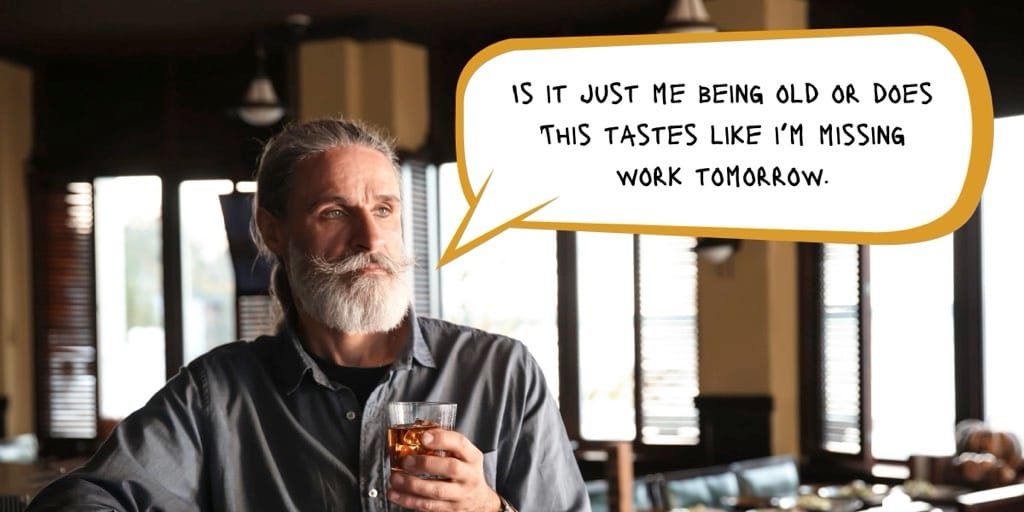Alcohol’s Impact Increases With Age, So Drink Wisely, Friends
None of the researchers quoted in the article recommended swearing off alcohol given complications as one ages. One even pointed out that drinking is a social convention, and socializing is a huge part of mental health.

For those who like alcohol and care about their health, it seems the impacts most focused on are impairment, calories and avoiding hangovers.
Impairment is the biggie, of course, since it’s both personal and potentially public. Overdoing it changes behavior, cognition, motor skills and, increasingly as we age, makes one sluggish the next day. Take it to the nightmare extreme of drunk driving and you have a whole slew of new problems.
Calories never seemed to matter until the 1970s, when Miller Lite pointed that its new brew contained less of them. (That it “tastes great” was a dubious claim, but let’s save that for another commentary.) Now people purposely drink less alcohol to lessen the impact on waistlines, chins and derrières.
And don’t think I need to go into why avoiding hangovers is a good idea.
In 2024, I’ve read two new reasons to be careful about alcohol intake: Alcohol’s increased impact while flying; and the lowering of everyone’s tolerance to alcohol as they age.
Research about flying and drinking aside, my question is why anyone wants to drink a lot on an airplane. Drinking is highly social for me, yet since I fly alone most of the time for work, I skip it. Headed to vacation with my wife is a slightly different story. We might have one to kick off a vacation trip or make a long flight a touch more enjoyable. But given that a car rental typically awaits us upon arrival, we generally skip it. Ultimately, to each his or her own on flying, but over indulging on a plane is a bad idea no matter how you look at it.
That our alcohol tolerance goes down as we age is a new one for me. Doubtless we all know our bodies slow down in every respect as we age, so why not the liver, right? It’s a busy organ given too little credit for its mastery of multitasking between, drinks, foods and moods.
But according to an article in National Geographic titled, “Why your alcohol tolerance diminishes as you age,” it’s not the reduction of liver function that plays the largest role in our increasing alcohol intolerance.
George Koob, a neuroscientist and director of the National Institute on Alcohol Abuse and Alcoholism, found that our changing body composition plays a large role. Since body fat tends to increase with aging (I’m fully aware of that fact), even if one’s body weight stays the same, the amount of water in the body decreases. Less water in the body means less water to dilute alcohol, which increases alcohol’s impact.
But wait, there’s more. Much more.
Further research shows our brains become more sensitive to the effects of alcohol as we age, so problems with coordination, judgment and reduced reaction time increase. These changes occur slowly over time, which means we may not notice them until an accident happens.
Researchers found that adults also may neglect to acknowledge the impact their increasingly numerous medications can interfere with the body’s ability to metabolize alcohol. Young people rarely have this issue.
None of the researchers quoted in the article recommended swearing off alcohol given complications as one ages. One even pointed out that drinking is a social convention, and socializing is a huge part of mental health. What he did say was to know one’s limits well, and to never try to match younger people drink for drink.
That observation brought to mind many interactions I’ve had with older people who say they can’t drink like we used to. Whether they regretted losing their ability to consume a lot of booze or acknowledged that inability with age, I don’t know. I wasn’t aware, as I am now, that this happens with age. Either way, it seemed like a dose of wisdom they were sharing, and it stuck with me. Now, it makes more sense.
Drink wisely, my friends.

